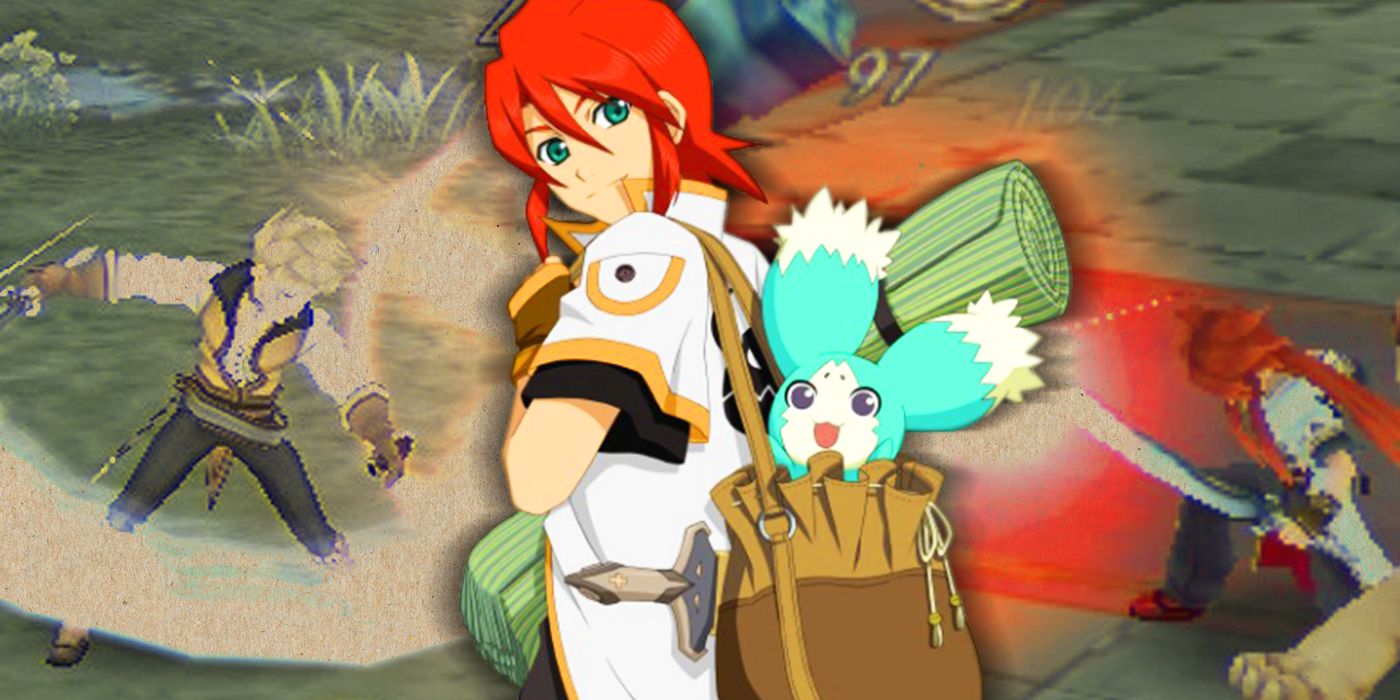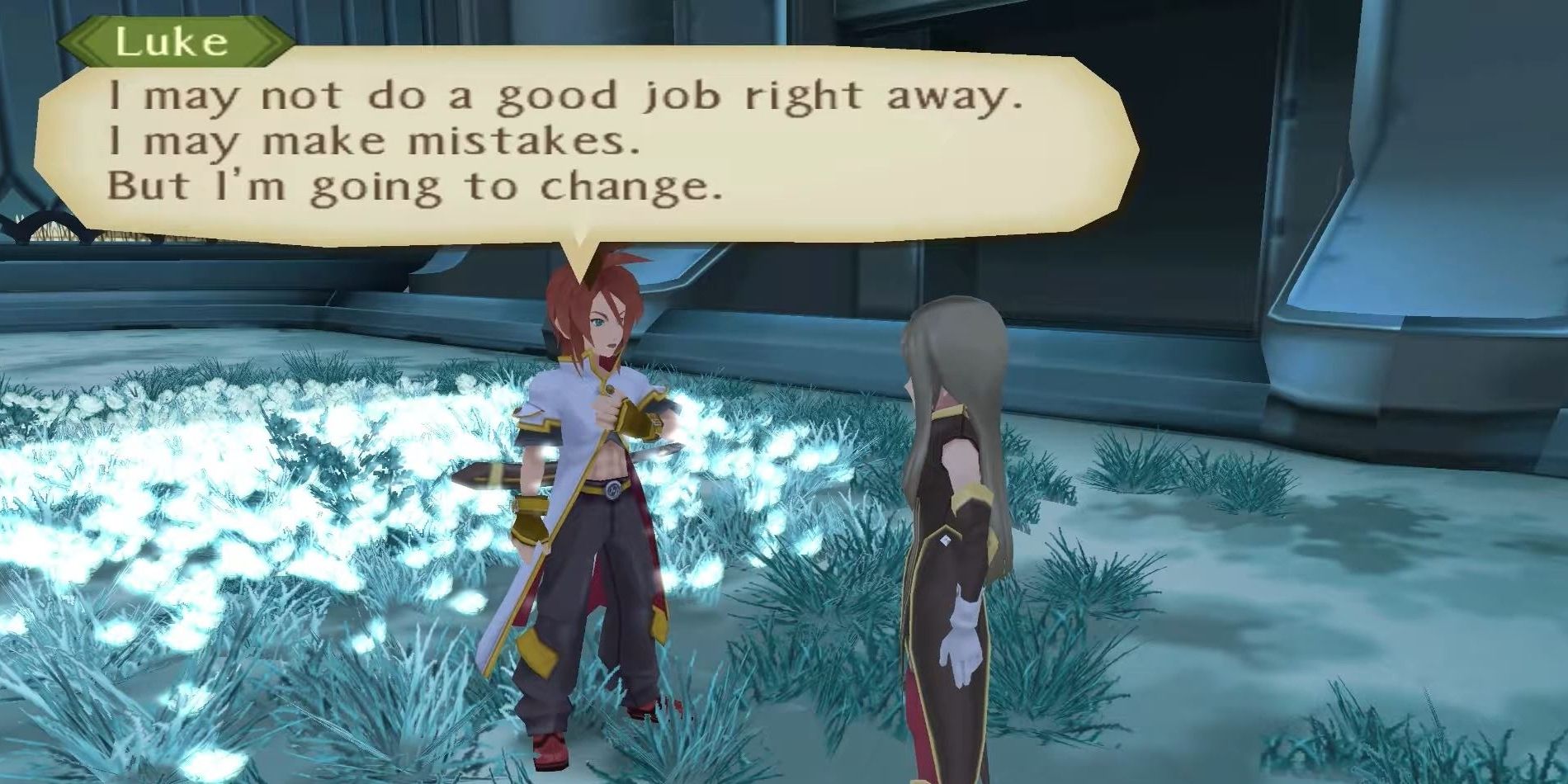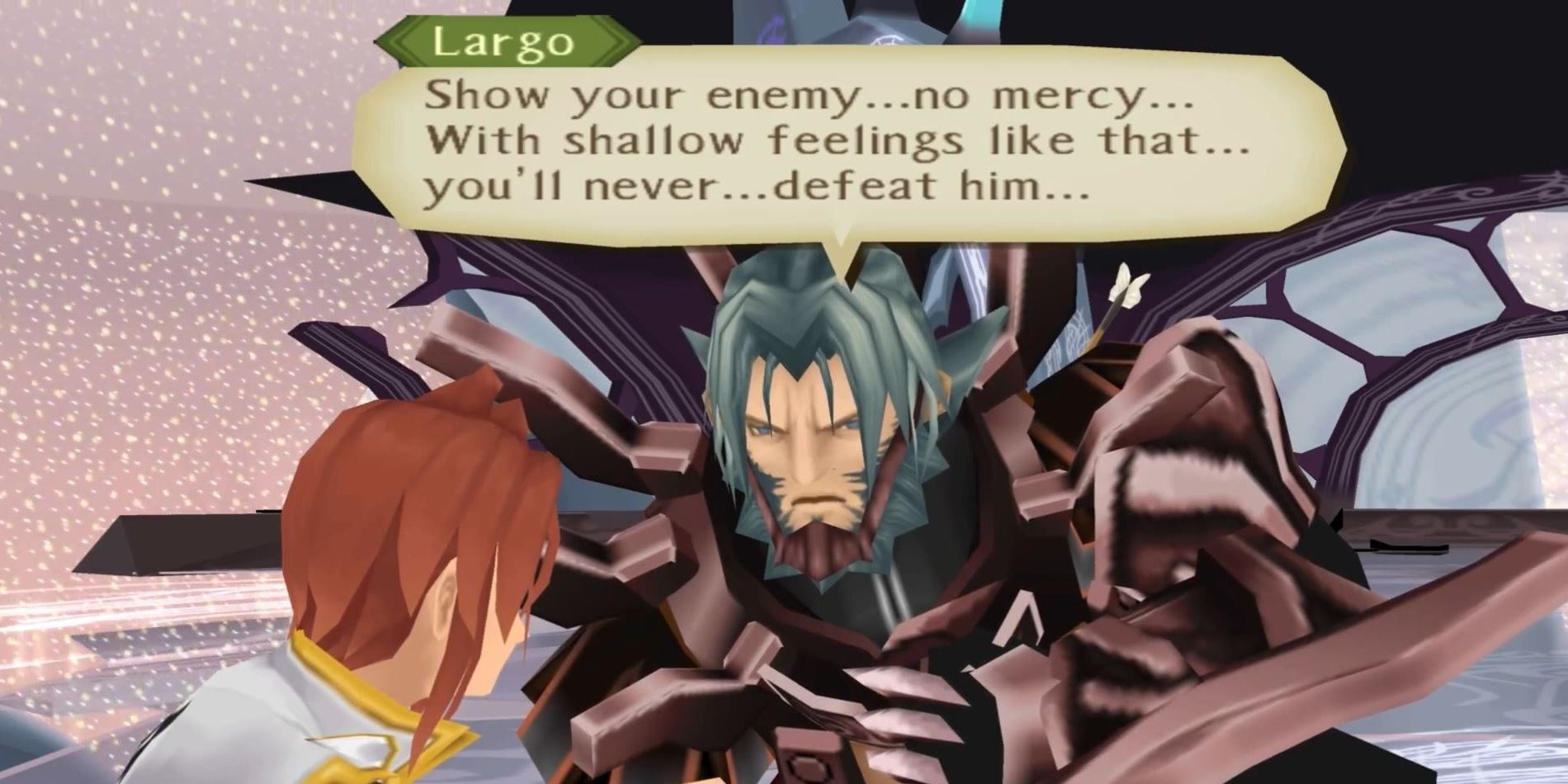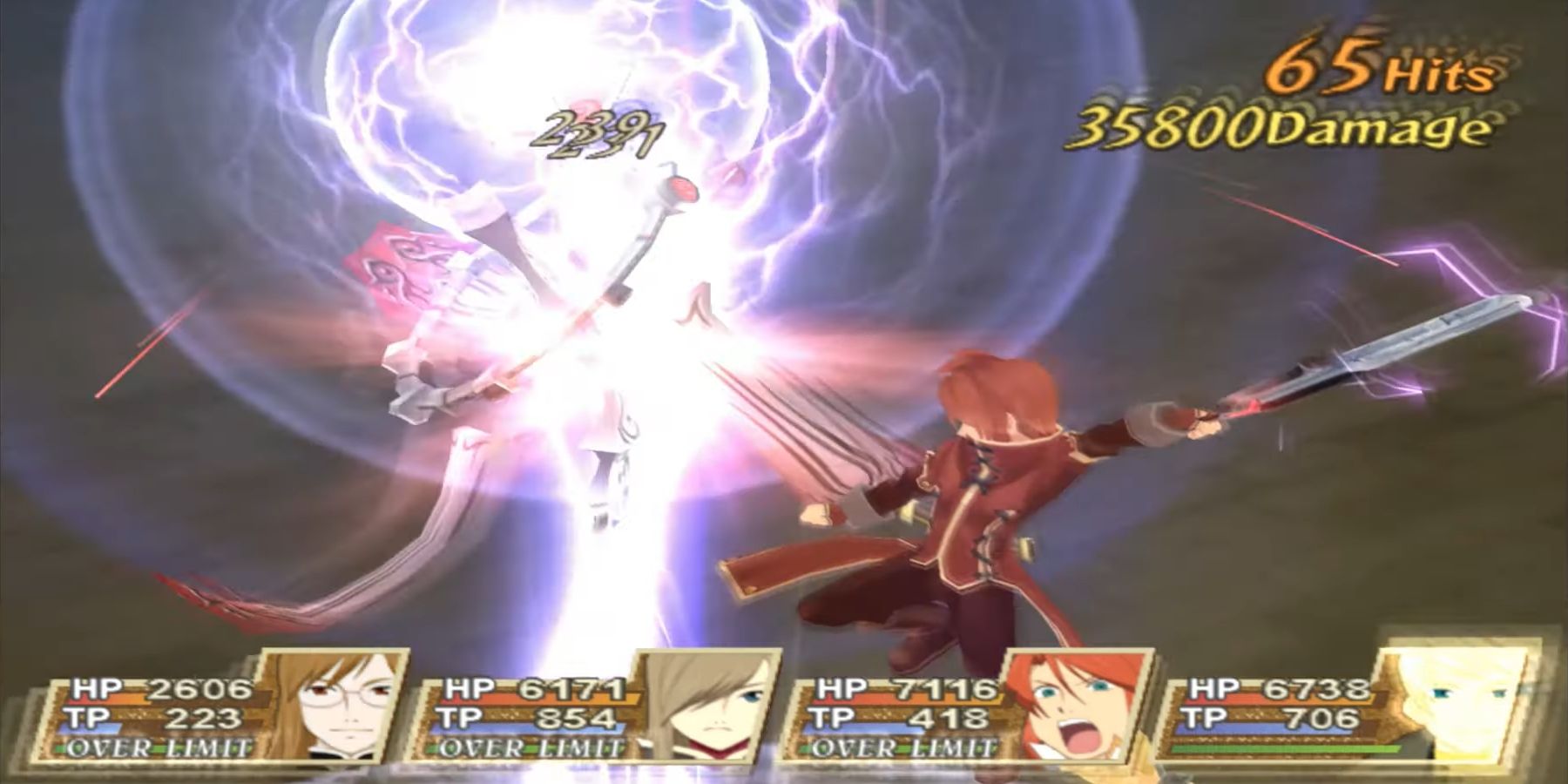
Tales of the Abyss was the last of Bandai Namco's Tales RPGs on the PlayStation 2. Though certainly successful upon its initial release, the Nintendo 3DS port surpassed international expectations by so much that a company representative claimed it had to be printed multiple times to meet demand. However, Abyss is so much more than just a surprise success. From its innovative action gameplay to its eternally-applicable themes, Abyss is one of the rare RPGs that stayed relevant with time. As its inter-generational success proves, it is nothing less than a timeless classic.
The Tales series has always focused on politics and philosophy. Its heroes have opposed bigotry, debated the ethics of vigilantism and even explored the question of individuality. Abyss is no different, being very much about free will. What makes its story so successful is its protagonist. Luke fon Fabre is one of the series' youngest leads, yet stars in one of its darkest games. This makes Abyss both a youthfully-energetic science-fantasy and a terrifying adolescent horror.

Luke's arc is so strong because he starts the game as a truly terrible person. As a sheltered rich boy, he's bratty and selfish, unashamedly ignorant and complains whenever his wealth doesn't buy him success. Once he learns that he is the messiah destined to save the world, he becomes so utterly self-centered that his companions begin deserting him. It's a surprisingly cynical interpretation of what a chosen one would be like, but Bandai Namco keeps Luke interesting by giving him some important virtues.
Even at his worst, Luke is genuinely averse to killing. He defends the weak, shows mercy to his enemies and constantly looks for peaceful solutions where possible. These hints of nobility perfectly foreshadow his gradual transformation into a better man, and his triumphs are all the more satisfying because the player is fully aware of how far he's come. Best of all, his growth compliments that of his friends. Abyss has one of the scrappiest casts in the series, but watching Luke change helps inspire them to do the same.
These slowly-uniting heroes contrast perfectly against the game's villains. The Six God-Generals represent a renegade faction of the world's leading religion, and together they are determined to change it. Their methods are extreme, but each one has deeply personal reasons for their actions. As such, when the two sides clash, the inevitable boss battles are as ideological as they are physical. Tales has always tried to craft more complex villains than the genre's usual planet-killing sadists, but Abyss went above and beyond in developing its foes.

What makes the God-Generals so interesting, and by extension the entire story, is that they're not entirely wrong. In the game's setting, everyone's destiny is foretold by a grand prophecy. Whether one becomes a chosen hero, single mother or serial killer, their future is preordained and defying it is impossible. This has led to humanity becoming incapable of thinking for itself, but that starts to change after the invention of human cloning. When forced to choose between two versions of the same person, the prophecy begins breaking down and free will can finally be asserted.
The inevitable battle over the potential of these replicas forms the bulk of the story. Those who seek to challenge fate fight tooth and nail to foster this seed of freedom, while those content with the privilege it's given them enforce the status quo at any cost. Both the heroes and God-Generals align with the former, believing that fate is an abusive tradition that must be destroyed, but take very different steps to realize that goal. The result is a game where every character, from noble knights to reprehensible rogues, feels like a fully-realized person with dreams, doubts and desires.
These ideas are probably what helped Abyss stay relevant throughout multiple console generations. While strong stories in their own rights, some Tales games can be too ambitious for their own good. Titles like Vesperia and Xillia 2 arguably have better concepts, but not everyone can relate to vigilantism or multiverse theory. However, there will always be young people struggling against society's confines, and that ensures Abyss will always have an audience.

Abyss's theme of flawed people banding together echoes throughout it gameplay. Like its siblings, it's a real-time action RPG, but its combat is far more streamlined. While this simpler design creates less variety between characters, it also allows the game's innovations to shine brighter.
New to Abyss is the Fields of Fonons mechanic. When a character casts an elemental spell, it creates a magic field that another can use to super-charge their attacks. This is a fantastically subtle way of weaving cooperation into gameplay, encouraging players to try different party combinations to find all the secret moves these fields allow for. Many RPGs talk up the power of friendship without demonstrating it in-game, but Abyss just sits back and lets players discover it for themselves.
Tales of the Abyss isn't perfect because no game is. It's not the prettiest entry in the series and, while it builds to an excellent ending, the final act is a bit too long. Even so, there aren't many games whose themes and characters can stay this relevant across generations. It has enough unique ideas to appeal to both fans of classic RPGs and new players looking for a different kind of fantasy. Its hopeful tone is the perfect palette-cleanser after all the dark and cynical stories of recent years. It turns out that when one gazes into the abyss, the abyss smiles back.
0 Comments